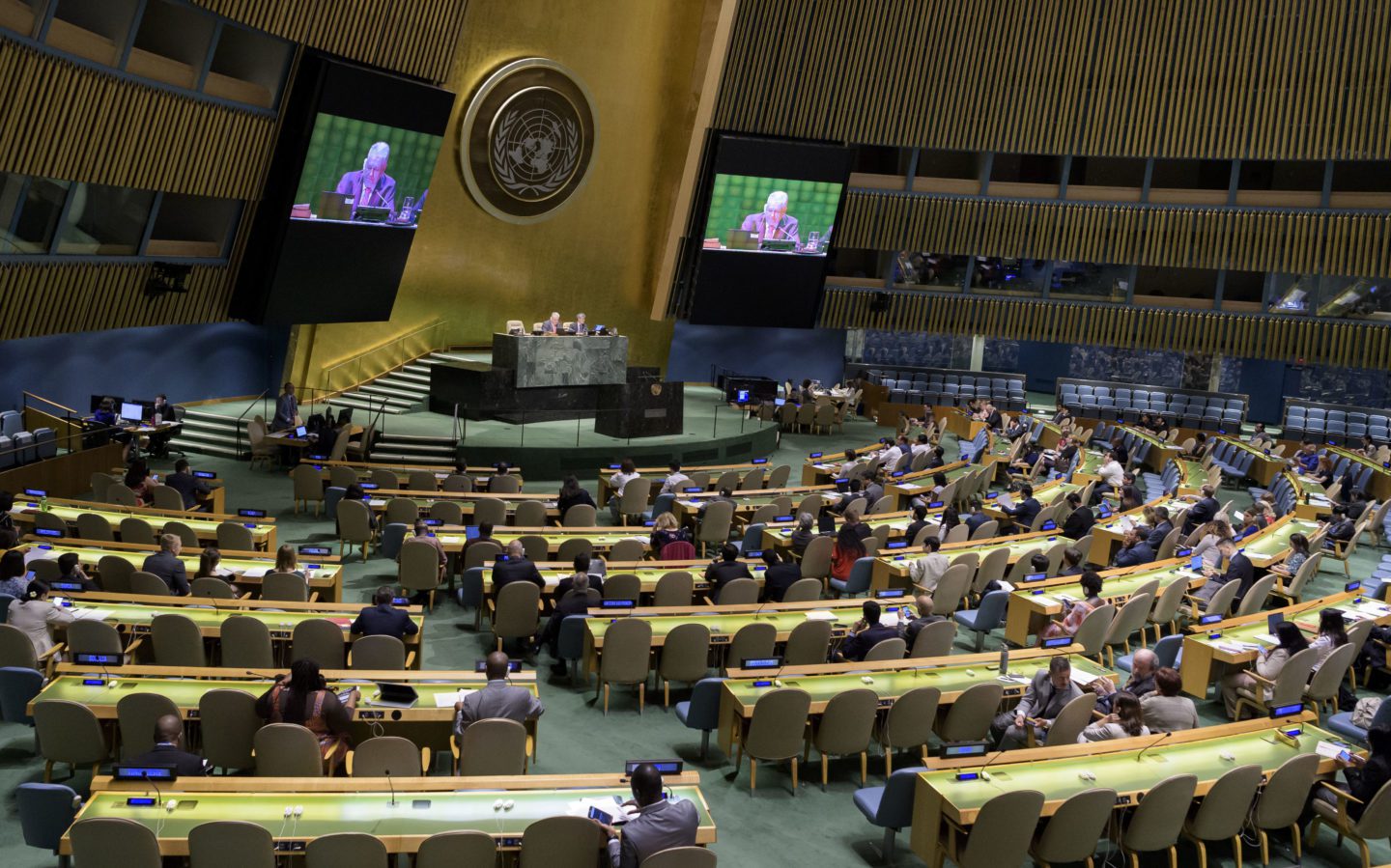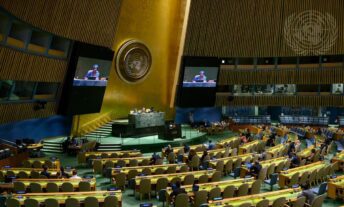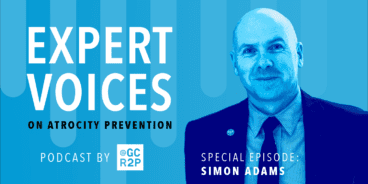
Remarks at the UN General Assembly’s interactive dialogue on “Responsibility to Protect: State responsibility and prevention”
Delivered by Dr. Simon Adams, Executive Director of the Global Centre for the Responsibility to Protect. United Nations Headquarters, New York.
Thank you Mr. President,
I would like to thank you for organizing this interactive dialogue on the report of the UN Secretary-General: State responsibility and prevention.
I would also like to thank the distinguished panelists for their contributions and to welcome the new Special Adviser on the Responsibility to Protect, Professor Jennifer Welsh. The Global Centre for the Responsibility to Protect is committed to supporting her mandate, particularly the mainstreaming of the Responsibility to Protect (R2P) through an open and constructive dialogue within the UN System.
Seven months from now the world will commemorate the twentieth anniversary of the genocide in Rwanda. In Rwanda the international community abdicated its responsibility to respond decisively as a million people were killed. The shadow of Rwanda looms over all subsequent discussion of the UN’s collective efforts to prevent mass atrocity crimes.
R2P is primarily a preventive doctrine. Every day the vast majority of the 193 member states of the UN uphold their Responsibility to Protect and the Secretary-General’s report has outlined ways in which governments can advance R2P through good governance, accountability and the promotion of human rights.
What does it mean to build a society that is resilient to mass atrocities? At the risk of focusing on a single country, in Côte d’Ivoire the government, with whom the Global Centre for the Responsibility to Protect has worked very closely, is collaborating with civil society to address the myriad challenges that persist in the wake of a devastating civil war. A range of measures fostering disarmament and reintegration and the creation of a Dialogue, Truth and Reconciliation Commission, demonstrate that the country is taking prevention seriously.
By contrast, in Syria we have seen the devastating consequences of a government manifestly failing to uphold its Responsibility to Protect. With over 100,000 fatalities and two million refugees, mass atrocity crimes committed by all sides in Syria are a stain upon our collective conscience. Attacks on innocent civilians queuing for bread and the use of incendiary bombs against school children in a playground are documented examples of the government’s determination to maintain power at all costs. Moreover, the recent use of chemical weapons was indiscriminate, immoral and illegal under international law.
Mr. President, the failure to resolve the situation in Syria is not a failure of the Responsibility to Protect, but a failure of the UN Security Council to live up to its most fundamental responsibilities in accordance with the UN Charter. In order to safeguard the UN’s credibility, and in order to make the Responsibility to Protect truly effective, there should be a moratorium on the use of the veto in situations where mass atrocities are being perpetrated.
Mr. President, in order to further contribute to the preventive dimension of R2P we also urge member states to embrace the national R2P Focal Points initiative, championed by the governments of Australia, Costa Rica, Denmark and Ghana. Since 2010, 34 senior government officials from five continents have been appointed as a designated R2P Focal Point by their government. In Ghana earlier this year the Global Network of R2P Focal Points came together to discuss the complexities of mass atrocity prevention in a national context and to share best practices. This is a concrete example of how we move prevention from rhetoric to praxis.
Finally, Mr. President, it is also important to note that mass atrocity prevention requires action across the entire conflict spectrum. Countries that experienced violent conflict between 1981 and 2005 had, on average, a poverty rate 21 percent higher than countries that did not experience violent upheaval. Injustice and inequality are especially dangerous in fractured societies where ethnicity, race or religion can be manipulated as tools for political marginalization or social exclusion. As such, we believe the Post-2015 Development Agenda should explore the nexus between development, conflict and mass atrocity prevention.
The UN cannot undo past failures. But as we approach the twentieth anniversary of the Rwandan Genocide and the third anniversary of Syria’s tragedy, the international community can rededicate itself to mobilizing political will to prevent, to protect and to act.
Related Content


Summary of the 2022 UN General Assembly Plenary Meeting on the Responsibility to Protect
